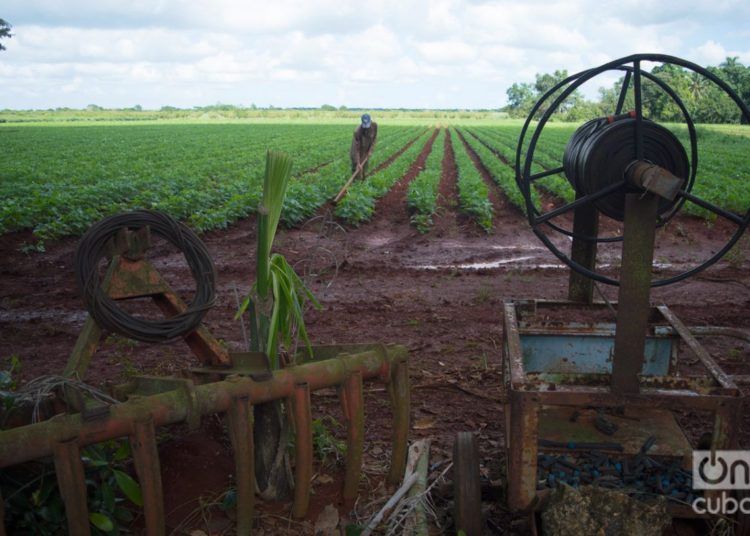The Cuban economy will maintain a growth rate of a bit over 1 percent for the 2018 plan, in which it will not meet the goals for incomes in the tourism, sugar and mining sectors, according to a report published yesterday by the island’s state-run media.
Cuban Minister of the Economy and Planning Alejandro Gil presented a report on the 2018 economic plan in the last meeting of the Council of Ministers presided over last Tuesday by President Miguel Díaz-Canel before his tour of Russia and several Asian and European countries.
According to that assessment, the growth rate of the Cuban economy this year will be slightly over 1 percent.
Last July, Díaz-Canel reported that the country’s economic growth in the first semester had registered a “discreet” 1.1 percent due to “adverse factors,” among which he cited the tense situation in foreign finances and the non-compliance of the planned incomes for exports, tourism and sugar production.
For 2019, Minister Gil indicated that the drawing up of the sector’s plan has as a priority reducing the import of products that can be produced in the country.
“It is necessary that we adjust expenditures to the incomes we have available and that we work to increase exports and guarantee meeting the adequate yield from investments, the only way to develop through our own efforts,” he said.
The Council of Ministers also analyzed the state of the accounts receivable and payable outside the term among the state-run enterprises, whose principal causes are the deficiencies in the registry, control and conciliation of the accounts, as Deputy Minister of Finances and Prices Meisi Bolaños explained.
She also mentioned as causes the lack of discipline in the deposit and destination of cash for the sale of merchandise and services carried out in retail commerce and in gastronomy, the deficient management of the inventories and the lack of demand in the compliance of the economic contracts.
To revert the situation of the non-payments, the government has established a group of measures that include a proposal to transform the financial state of the retail commerce enterprises and gastronomy, as well as making timely analyses of the chain of debts in all the business entities.
In that sense, Díaz-Canel called for a demanding attitude because “contemplative measures are being taken and solutions are resorted to that damage the State budget and don’t resolve the undercapitalization of the enterprises with lack of liquidity.”
“We have to resolve the structural problems, the organization and control, on the contrary the resources are wasted. You have to get into the problems, search for spaces for the rendering of accounts in each board of directors and management meeting,” the president insisted.
Regarding taxes, the report by the Cuban News Agency said that ever since private work was expanded, the number of taxpayers went from 150,000 in 2011 to 590,000 at present.
Moreover, in the last five years the State budget’s incomes have grown between 1 and 8 percent, while taxes, rates and contributions make up 74 percent of the total of paid taxes.
In the case of the state sector, the budget incomes through that means represent 85% but according to Deputy Minister Bolaños lack of indiscipline and tax evasion persist due to the non-declaration of incomes and irregularities in the justification of expenditures among the autonomous workers and the exercise of illegal activities.
To avoid tax evasion, the Council of Ministers approved measures such as the withdrawal of authorizations, the closing of establishments, higher fines, systematic operations to check the legal exercise of self-employment and greater tax control in the buying and selling of cars and homes.










